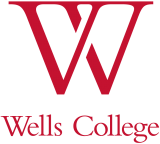Faculty in higher education institutions, by their very nature and training, tend to be specialists within their disciplines. However, sustainability as a field of study is highly interdisciplinary, requiring faculty who teach about sustainability to become generalists. They must integrate content from among the three knowledge “pillars” of sustainability: environment, economics and socio-cultural concerns, zones which may be uncomfortably far from their area of expertise. Developing 21st century leaders who understand their roles and responsibilities as global citizens requires a big-picture, “systems” approach to problem-solving, so more faculty are responding to the need to infuse considerations of sustainability into courses within their academic discipline or to create wholly new interdisciplinary courses. “Bringing across” content from less familiar knowledge domains and integrating it within one’s disciplinary curricula –teaching “outside the lines” – requires specialized training and support.
The Finger Lakes Project is just such a specialized faculty training program to support sustainability curriculum development. The workshop design is based upon the prior efforts of Geoffrey Chase, originator of the Ponderosa Project at Northern Arizona University, and Peggy Barlett, who developed the Piedmont Project at Emory University. The Ponderosa Project is an interdisciplinary faculty group effort to incorporate environmental sustainability issues into university courses with the ultimate goal of providing future citizens the education and skills necessary to achieve sustainable communities and societies. The Piedmont Project emerged as a grassroots effort on the part of a group of faculty, led by Barlett, to strengthen Emory University’s engagement with environmental issues and sustainability.
Chase and Barlett co-authored a volume titled “Sustainability in Higher Education: Stories and Strategies for Transformation” (updated edition, Cambridge, MA: MIT Press, 2013), offering examples of effective place-based, cross-cutting disciplinary teaching of sustainability content. Chase and Barlett collaborated with the Association for the Advancement of Sustainability in Higher Education (AASHE) to design and deliver a “train the trainer” program to develop faculty leaders on campuses across the country to establish their own “place-based” sustainability curriculum workshops for their peers. To date, that AASHE faculty training program has spawned the creation of close to two dozen similar sustainability education programs around the country, including the Chesapeake Project at the University of Maryland, the Winnebago Project at University of Wisconsin – Oshkosh, and Santa Clara University’s Penstemon Project.
In 2005, Ithaca College sent two of their faculty to the very first AASHE-sponsored “Sustainability Across the Curriculum Leadership Workshop” to learn directly from Chase and Barlett how to guide their interested peers on strategies to embed sustainability content into courses across disciplines. The two Ithaca faculty returned to create the Finger Lakes Project, the regional place-based variant on the Ponderosa/Piedmont Project workshop model. The Finger Lakes Project was offered at Ithaca College from 2005-2013, with funding support from the National Science Foundation and the HSBC in the Community Foundation.
Information about some earlier Finger Lakes Project workshops can be found here
After 2013, when external funding support ended, Ithaca College discontinued offering the Finger Lakes Project.
With permission from the Ithaca College faculty members who had developed the program, Wells College’s Center for Sustainability and the Environment is moving the Finger Lakes Project up Cayuga Lake from Ithaca to nearby Aurora. With the generous support of the Jephson Educational Trust and the assistance of our friends and colleagues at Ithaca College, Wells College can continue to offer this unique and valuable professional development workshop opportunity to higher education faculty throughout upstate New York who are interested in learning how to effectively infuse sustainability content into curriculum across disciplines.
As far as we know, the Finger Lakes Project is the only such specialized sustainability curriculum development workshop offered within New York State and perhaps even within the Northeast U.S.
Through generous additional support of the Jephson Educational Trust, participants in the 2017 Finger Lakes Project workshop may become eligible for mini-grant funding to develop their own sustainability curriculum. This funding opportunity is only open to those who complete the full Finger Lakes Project workshop – details about applying for funding and the review process for awarding mini-grant funding will be explained at the end of the workshop.
